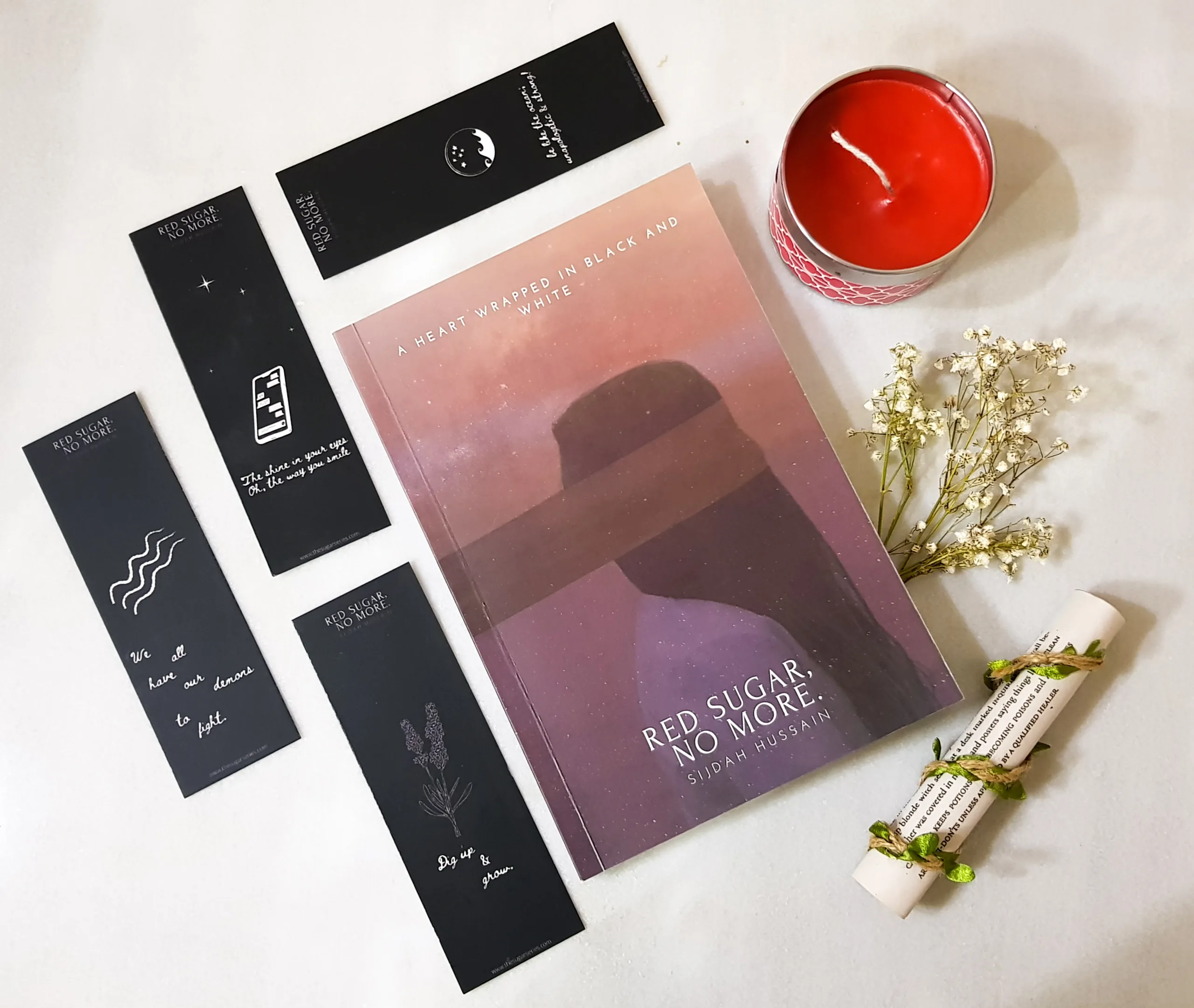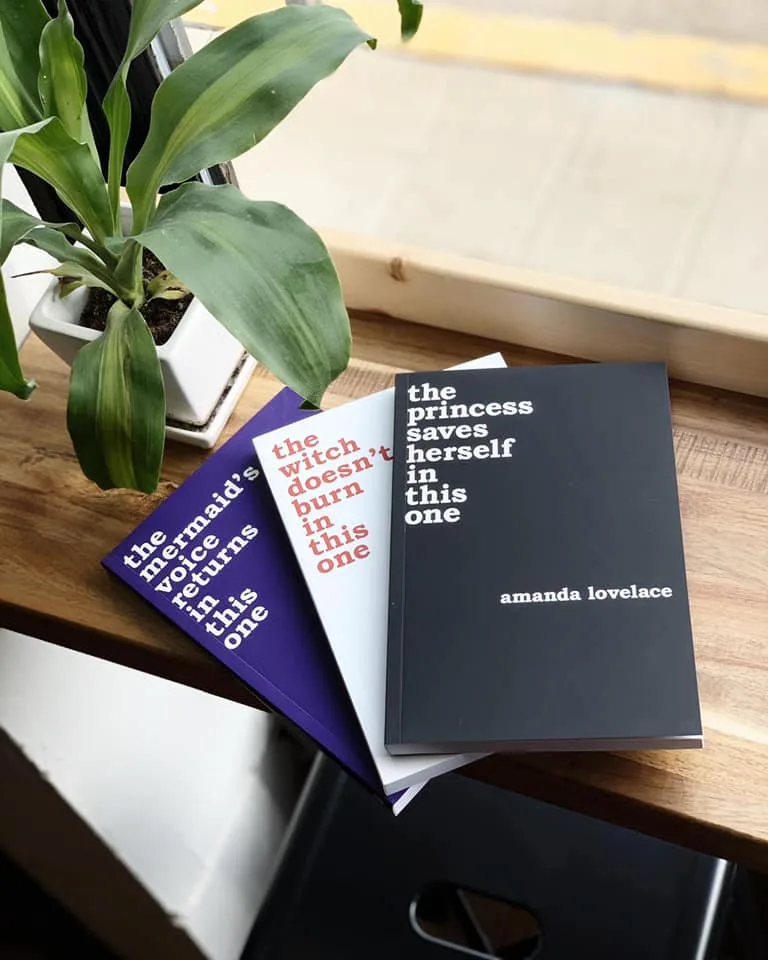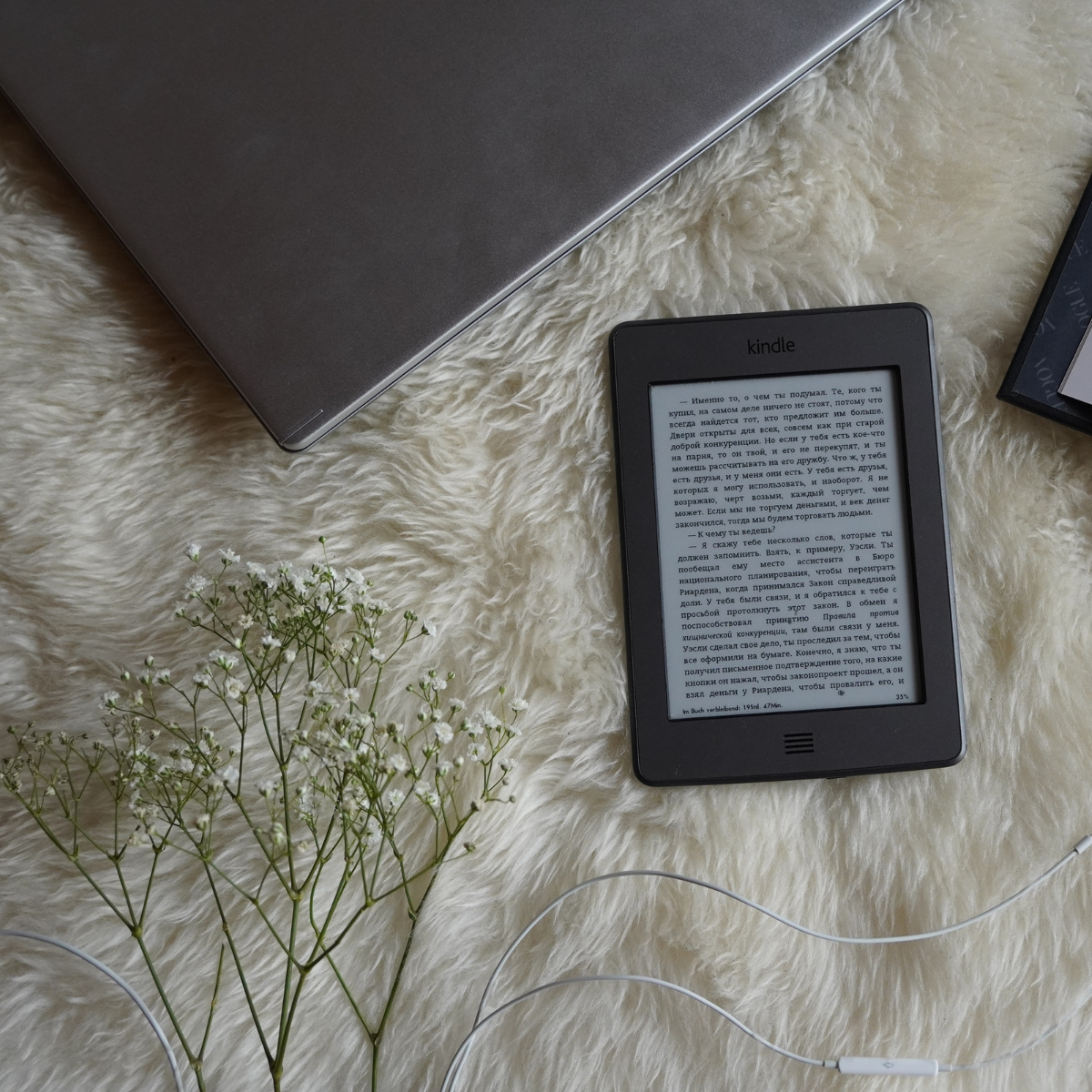Living a middle or lower class life can be difficult especially if you have big dreams – from becoming an entrepreneur to having a bestselling book, video, movie or music album … you end up getting brushed under the rugs without ever being given a chance to. It is, however, funny how all sorts of dramas – no matter where they originate from – always give us hope of an unsaid promise … the promise of a better tomorrow.
From the world giving us a boot environmentally and putting a clock on life itself – it can get overwhelming and difficult to go running from one literary agent to the next especially since there are none in Pakistan (as per my information). We don’t even have actually publishing firms – to those who think there are some … I am talking about traditional publishing firms that pay the writers to use their work and not the other way around.
I self-published my first book in 2020 – Red Sugar, No More – and I am satisfied with the results I got. Therefore, here I am to dissect each myth about self-publishing and talk about how can do the same.
What are the 7 most common self-publishing myths?
- It is for people with no talent
- If a work has been self-published, it probably has zero quality
- Self-published authors don’t get recognized
- Once a self-published author = Always a self-published author
- e-Books are inferior to print books
- You have to do it all on your own
- Self-published authors need to do more marketing
Reality: The dismantled myths
I am not going to bore you with my story as to how I hopped publishers, received criticism or gave up – this is not an interview, haha. In all honesty, I didn’t really try to go a publisher – I am pretty content. Anyways, let’s get to the point.
If you have read until this part, you really want to either be self-published or want to know the secret behind it. Therefore, the first thing you need to understand is that any dessert is only as sweet as the amount of sugar added to it. By saying this what I mean to tell you is that whether you are going for traditional publishing or self-publishing … you will end up doing a lot of hard work and it can be very exhausting on your mental and physical health along with your pocket.
Myth 1: OnLY uNtAlENted people opt for self-publishing
(okay, I can’t wRit3 like this any further but you get the sarcastic tone, right?)
There are a number of reasons why one might prefer self-publishing over traditional publishing. My major reason for doing so was to have complete creative control over what I did and not let anyone label my work as their ‘hard work’.
Many great authors like Ernest Hemingway, Jane Austen and Virginia Woolf actually self-published. Why?
- No one knew Hemingway enough to have invested in his work
- The publishers were taking too long with Jane Austen’s work so she went to get it done on her own!
- Woolf wanted more creative freedom
Absolute love for Jane to have taken the step herself rather than just sitting and depending on others to do it.
Myth 2: Self-published = Zero Quality
While some people might want to self-publish only to stroke their ego, it isn’t always true. Since I already told that many great authors of the past self-published, I’d give an example of the current authors who self-published and continued to do so.
Christopher James Paolini – an American author – self-published the first book ‘Eragon’ of his The Inheritance Cycle series at the age of 15. Fortunately for him that Carl Hiaasen noticed his book and got him a deal. The book series has sold over 33 million copies till date.
Moral of the story here is to not sweat over whether you are self-publishing or not … it is to make sure your content has the quality to touch the reader.
Myth 3: Self-published work never gets recognition
We live in a digital age, we don’t need to send out hand-written letters to let other know about our ups and downs. People are literally a tap away from us so why do you think someone might not get recognition?
There are many writers who ended up getting deals from traditional publishing houses but couldn’t get as many sales because they just didn’t have enough readership before their book came out. Recognition isn’t dependent on whether you get published yourself or by someone else – it is dependent on the number of people you know. It is dependent on how much of a social presence you have.
For instance, let’s talk about Abu’s Jinn – the author Ayesha Muzaffar self-published using Amazon. Her copy made it to many countries and got quite the hype and rightly so. Her second book, Jinnistan, was picked by Liberty Publishers which ultimately led to a third one The Bhabhis of Lahore & Other Forbidden Tales of the City. So how did this happen?
Like I said before recognition isn’t something you will get after getting your book or work out – it is something you need to start working on before it comes out.
Ayesha created an account dedicated to Pakistani horror stories and kept adding excerpts for her readers. She had a great following by the time she self-published her first book and viola – everyone was talking about it. Everyone wanted it. This is what a smart marketing plan looks like!
She took her time and made her debut only when it was right and not when she wanted it to be right.
Myth 4: Once self-published = Forever self-published
Just because you got your first book self-published it doesn’t mean you will always have to self-publish. One of the most common myths about self-publishing is that authors diminish the chances of ever getting a book deal the moment they do so themselves.
This is, I feel, a myth most marketed by tradition publishers. If everyone started to self-publish how will their businesses survive, no? This is, however, another debate – for another write-up maybe.
Let’s talk about Amanda Lovelace since I have already talked about Ayesha Muzaffar. In 2016, Lovelace self-published her first book “the princess saves herself in this one” via Amazon and other such platforms. She received the Goodreads Choice Awards Best Poetry for her self-published book and caught the attention of a publishing house. In 2017, Andrews McMeel re-published the book and have been her publishers since then. Lovelace has published about 10 books since 2016 with them.
Myth 5: e-Books are inferior to print books
While there’s a lot of bad blood regarding e-books especially within the reading community, this is by far the most base-less myth I have come across. I once came across a post where e-books were compared to muggles (harry potter reference).
e-books can be difficult to read and, yes, they might not have that ‘new books smell’ or whatnot but they are actually pocket and eco-friendly. Imagine the number of trees that might get chopped down just so we could have a few books in our libraries. Tsk. I enjoy paperbacks too – no doubt, but it doesn’t mean that I let go of the facts.
Moreover, if you go by self-publishing an e-book it is easier to deliver internationally. A paperback might get held up in customs or may cost you a lot of shipping charges … a e-book won’t.
If you’re just starting out, e-book self-publishing could be a nice way to see the audience reaction before you opt for paperbacks and make it permanent.
Myth 6: Self-publishing means you end up doing everything yourself
No, it in no way means that you have to be your own saviour. If you get held up at something and are unable to do it you can always outsource. The perk would be that you won’t have to agree to a particular service just because the firm told you so. That’s how it works in the publishing industry, at times, especially in Pakistan. One company even charges the authors for the number of times they get something changed or updated – talk about exploiting! Eesh.
Myth 7: Only self-published authors need to fret about book marketing
While it may seem like the case, it totally isn’t! Even traditionally published author need to market their books. The point again goes back to recognition and your contacts. I haven’t seen a certain Aam-bazz e-mag (a Pakistani internet media company) give heat to any author or their work other than one in particular because their social media head was friends with that author. The author was good and the work had taste – however, this contact helped in getting more attention and turning the book into a phenomena. Please understand that this is how it works. You can’t complain about such things because without the right contacts – no one can get the attention they deserve.
Every single person you know can help you or get help from you. I tried to connect with many such media companies but since I didn’t have a direct company some didn’t replied and the few that did totally otherised me. Tsk. Hard life. Haha.
The point being that even a traditionally published author will have to market the book themselves. A publishing house, especially a big one, will focus on their best-sellers and won’t worry or try to sell the copy of an unknown book even though they invested in it.
For example, Hina Shamsi self-published her first book “The Quintessential Fat Girl: Beautiful Is Not A Size” back in 2019. Even though her book is great and got picked by Liberty Publishers – she had to continuously market it on her social platforms. Back then, she even advised me on great many things when I joined a certain Pakistani author’s group. Currently, her marketing campaign includes a series of weekly giveaways to people who buy and put an aesthetic picture of the book on instagram publicly or so – something like that.
Can I self-publish in Pakistan?
There is no other publishing in Pakistan, no offense, the companies that tend to offer publishing solutions or call themselves literary publishers are only sitting to make money.
If you get picked by one of the publishing houses that don’t ask you for money – they will probably exploit you in some other way. Therefore, you need to make sure that you get the following rights added to your contract when signing with one:
- Only you should hold the content rights (no publisher can sell your content in any form you haven’t agreed to with them without your permission)
- You should have the rights to audit your book sales (you will be able to see how many copies were sold and how much are you getting as per the contractual agreement)
- You should also have the distribution rights of your book (this will help you move your copy from one publisher to another or even let go of a publisher if things don’t seem to be working out)
Most publishers won’t agree to the last point – because business and yes it makes sense too – however, many times when an author signs with a publishing house they end up regretting it. They don’t come out about it because no one will give a chance to them and go up against an already established agency. Therefore, my honest advice to you is to turn to self-publishing unless and until we get a traditional publishing house in Pakistan.
You can self-publish in two ways:
- Go digital
- Get printed
If you wish to go digital – you can opt for Amazon kindle publishing; they let you publish an e-book, paperback as well as a hardback. They will publish your book, cut the publishing fees and deliver it to the person who orders it. As soon as you make $100 worth of royalties – they will let you take out a transaction. The payments are on monthly basis so even if you make $100 in less than 30 days – you might have to wait a bit. In this option, you will only be spending on the marketing of the book (that too only if you want to) – given you format and design the cover yourself – amazon offers a free cover image too, jbtw.
A drawback regarding Amazon kindle self-publishing for Pakistanis is that they either won’t deliver the copies in our country or their shipping charges would be too discouraging to order a copy. This is where you need to make your mind about whether you want Pakistanis to read your book or not. If your answer is yes – then get a few copies of your book printed. You don’t need to go to a publishing firm for this (they overcharge print on demand as well) – you just need to find a printing house.
When printing, you will have to choose:
- Your book size (e.g. do you want an A5 size or a 6 x 9 one?)
- Your page quality (there are a number of page types to choose from – most print-on-demand publishing companies will end up printing your book with a low-quality page saying it’s 80 gram or so … therefore, best go and check page qualities and decide which one works best for you financially and quality-wise – their prices vary per gram)
- Your cover card quality (all book covers are printed on art cards – however, they all vary in weightage and thickness just like pages)
- Number of copies (a safe number would be 100 copies initially – however, the more copies you get printed the lesser it costs you per copy)
- A mode of delivery (Pakistan Post is cheap and has gotten better ever since a shift in its leadership – however, the postmen might end up messing your book by bending it. You can also offer a pick-up option to people who don’t want to pay the delivery fees)
And that’s it – you’re done with the book publishing process. The real game begins after you are done with it and have to market your book. That, however, will need another write-up.
Best of luck!





